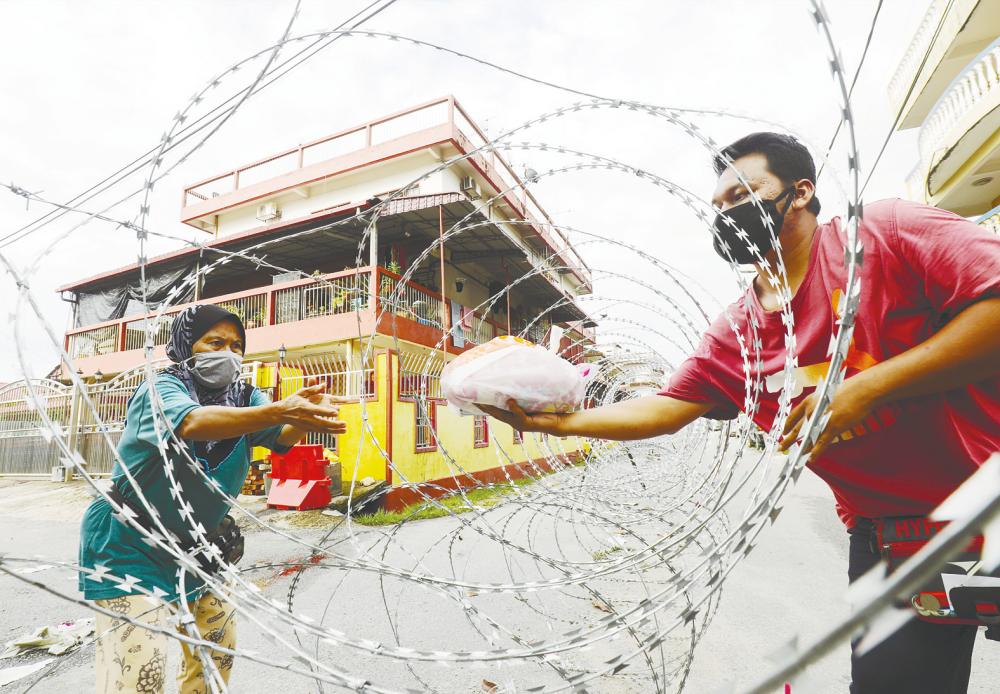WHEN I was thirteen, my father and I boarded a bus in Johor Bahru bound for Kuala Kangsar.
It was my first time leaving home, and I was heading to a boarding school I knew little about, in a town I had never been to.
The journey was long, with the bus rattling along endless stretches of highway. My dad was not a man of many words but as we sat side by side, his presence was enough.
He did not try to soothe my anxieties or promise that everything would be easy. Instead, he simply placed his trust in me, silently teaching me that life would often require independence and resilience in the face of uncertainty.
When we arrived, he helped me settle into the dorm, said a quiet goodbye, and then left. There were no grand speeches, no dramatic farewells. It was just: “Pandai-pandailah jaga diri. Belajar rajin-rajin.”
Yes, it was a small act, one that would never make headlines or draw applause but it shaped who I became. My father’s quiet heroism lay in his steadfast duty – doing what needed to be done, without seeking recognition.
The myth of loud heroism
In today’s world, heroism is often defined by visibility. Social media has conditioned us to associate significance with likes, shares and public acknowledgement.
Activism, achievements and even acts of kindness are frequently amplified for the world to see. There is nothing wrong with celebrating success or causes – some stories need to be told – but the quiet heroism of simply living rightly has been overshadowed.
Heroism does not always require a stage. There is profound courage in the unseen, the uncelebrated. A mother sacrificing her dreams to ensure her children receive an education. A son rearranging his life to care for an ageing parent. A teacher who spends decades inspiring students, one classroom at a time. And many other examples.
Marcus Aurelius, one of the most powerful men in history, left behind a body of work, Meditations, that reveals a deeply introspective soul. Despite his position as a Roman emperor, he constantly reminded himself that his duty was to serve, not to seek glory.
“Waste no more time arguing about what a good man should be. Be one,”
he wrote.
In a society obsessed with self-promotion, Aurelius’ philosophy is a reminder that the truest heroism often lies in simply fulfilling our roles with integrity. Whether as a parent, a friend or a member of a community, our quiet contributions can ripple outwards in ways we may never fully see.
Paulo Coelho’s The Alchemist offers a similar lesson. Santiago’s journey is filled with grand adventures, but the story’s heart lies in the simple moments: learning from the crystal merchant, listening to the desert’s silence and realising that his treasure was within reach all along. Coelho reminds us that life’s magic often lies not in monumental achievements but in the quiet, persistent pursuit of purpose.
Just as Santiago learns to follow the “Language of the World”, we can find heroism in following our internal compass.
Raising a family with values, being a reliable colleague or simply showing kindness to strangers – these are acts of quiet courage. They do not demand recognition, but they build the foundation of a good life.
The courage to be quiet
Living a quiet life requires its own kind of bravery. It means resisting the urge
to measure your worth by external validation. It means finding satisfaction in doing what is right, even when no one notices.
My father did not need an audience to teach me resilience that day on the bus. He was not looking for accolades when he left me at that boarding school. Yet, his actions instilled in me lessons that I carry to this day. He taught me that strength is not always loud, and that some of life’s greatest acts of heroism happen far from the spotlight.
In a world increasingly defined by noise and spectacle, perhaps it is time to redefine what it means to be heroic. It is not about the size of the stage or the applause you receive. True heroism is found in the commitments we keep, and in the everyday acts that may seem insignificant but collectively shape the world around us.
It is in the person who picks up a piece of litter, even though they did not drop it. It is in turning off the tap while brushing your teeth to save water or switching off the lights and fans when leaving a room to conserve energy. It is in the classmate who stays late to help
a struggling colleague meet an assignment deadline or a neighbour who waters someone’s plants while they are away.
These actions do not make headlines or win awards but they speak volumes about character and integrity. It is in these moments, often unnoticed, that true heroism resides – a commitment to doing what is right simply because it needs to be done.
So, as we manoeuvre this age of visibility and constant attention-seeking, let us not forget the heroes who walk among us silently.
Let us honour the courage of those who simply do what is right, day after day, not for recognition, but because they know it matters. And maybe, the most heroic thing we can do in life is simply to do the same.
Quietly.
Dr Nahrizul Adib Kadri is an associate professor of biomedical engineering and the principal of Ibnu Sina Residential College, Universiti Malaya. Comments: letters@thesundaily.com









